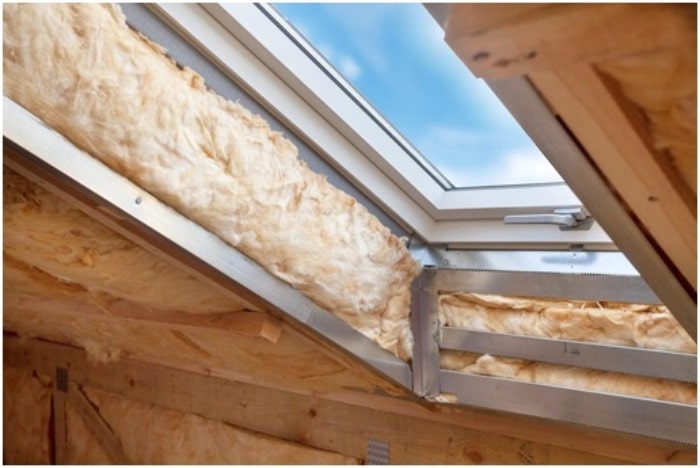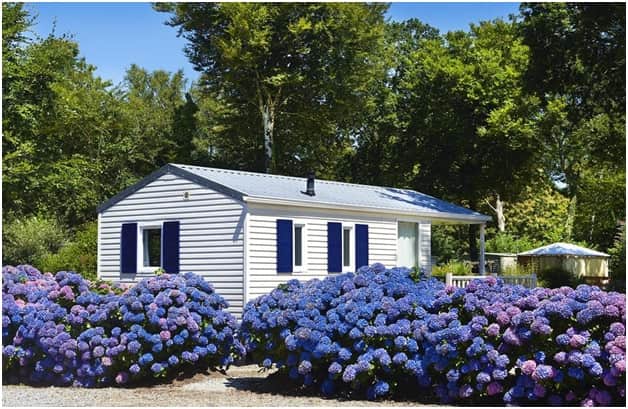
Energy efficiency can make things easier on both the environment and your wallet – but unfortunately, your home is likely a big culprit for energy waste. From air leaks to excessive water usage to unnecessary extra space, there are many sneaky ways your house might be overworking to support your daily habits.
Here are some common reasons for wasted energy and tips on how to make your home more energy-efficient.
Make sure your home is well-insulated and isn’t letting air escape.
Quality home insulation keeps your home comfortable and your heating bills manageable. Insulation is assigned an “R” value based on how resistant it is to heat transfer; the higher the number, the better the insulating power. You can either check the R-value of your insulation yourself or hire someone to evaluate it for you. If your insulation isn’t as effective as it should be, you might consider working with a contractor to invest in an upgrade.
Draftiness in your home could also be causing your heater to work overtime. Letting cool air come through the cracks in your home isn’t just unpleasant, it’s also wasteful and can get expensive. Common culprits for drafts are windows and doors, but less suspect places like recessed lights or outlets can also be letting heat escape. On a windy day, close all of your doors and windows, turn off your fans and the television and listen for air coming in.
Allstate recommends closing all of your doors and windows, turning off any noisy appliances, lighting a stick of incense and holding it where you suspect an air leak. If the smoke starts moving, then air is passing through! Once you’ve identified the sources of your drafts, you can close up the gaps with caulk as needed.

Try a smart thermostat to avoid fighting the outdoor temperatures too hard when you’re home.
A smart thermostat is a sophisticated and high-tech way to control the temperature in your home. It allows you to use a smart device (like your phone or tablet) to schedule temperature settings at certain times and can even learn and adapt to your preferences for heating and cooling based on how you use the machine. We are really living in the future.
Smart thermostats are a great way to ensure you’re not spending money to pump the heat or blast the air when you don’t need to be, such as while you’re at work or if you’re traveling. The fact that these thermostats are hooked up to your smart devices means you can make adjustments even if you’re not home.
With or without a smart thermostat, another way to decrease heating and cooling costs is to simply be mindful of the temperature you keep in your home. Even if you love having an ice cold home in the summer, consider raising the temperature just one degree. Love to be toasty in the winter? Keep the temperature a couple of degrees cooler, and opt for a cozy pair of slippers instead. You certainly won’t feel the difference, but you’ll probably see it in your savings.
Be mindful of your water usage.
The “Don’t Waste Water” segment from Sesame Street had the right idea all along: “Water means so much that we have got to use it carefully.” If your monthly water bill is coming up strikingly high compared to other, similar homes, it’s time to evaluate why this might be.
- Do you or a loved one make it a habit to take very long showers? Turn off the water while you suds up, or consider installing a water-saving, low flow shower head instead.
- Do you leave the water running while you brush your teeth? Turn the faucet on just in time to rinse; you don’t need it otherwise.
- Do you run the dishwasher or washing machine, even when there’s still room left? Consider waiting until you have a full load to run them.
- Can you hear the “drip, drip” of a leak in your bathroom? Search for the source – and get it fixed – right away.
 Consider moving into a smaller, more eco-friendly mobile home.
Consider moving into a smaller, more eco-friendly mobile home.
While this recommendation is the most drastic, it will also have the largest impact. Though spacious and lovely, many people live in homes that are much bigger than they really need – and end up paying to heat and cool a bunch of empty rooms that they don’t even use.
Think about how you currently use your home:
- Do you regularly make use of every single room in your house?
- Are you paying to heat or cool spaces in your home that you rarely even enter?
- Do you often leave the lights on in multiple rooms of the house, even if you don’t return for hours?
- Are infrequent guests the only people who’ve ever seen your spare bedroom?
Simply put: It takes more energy to pump heat or air conditioning through a large home than it does a small one. In terms of energy usage and space, smaller homes are beneficial because less square footage to manage means less energy to waste. Therefore, less money to spend.
If you’re serious about energy efficiency, consider eco-friendly mobile homes for your next move. In addition to having a smaller footprint, mobile homes made after 1976 are done so under controlled environments, and newer models are generally more energy-efficient, thanks to standards set by the US Department of Housing and Urban Development.
Home, Efficient, Home
Thankfully, the key culprits for energy waste are also some of the easiest to correct. By taking the time to explore how your home might be losing energy (and losing you money), you’re already well on your way to solving the problems.
Author Bio:
Lifestylist Suzanne Felber has been active in the housing industry for over 30 years. Felber realized that factory-built housing was the housing of the future over 20 years ago, and has been actively working to promote the lifestyle ever since. She started American Housing Advocates as a way to share the great news about manufactured housing. In her free time, she loves DIY projects and gardening.
